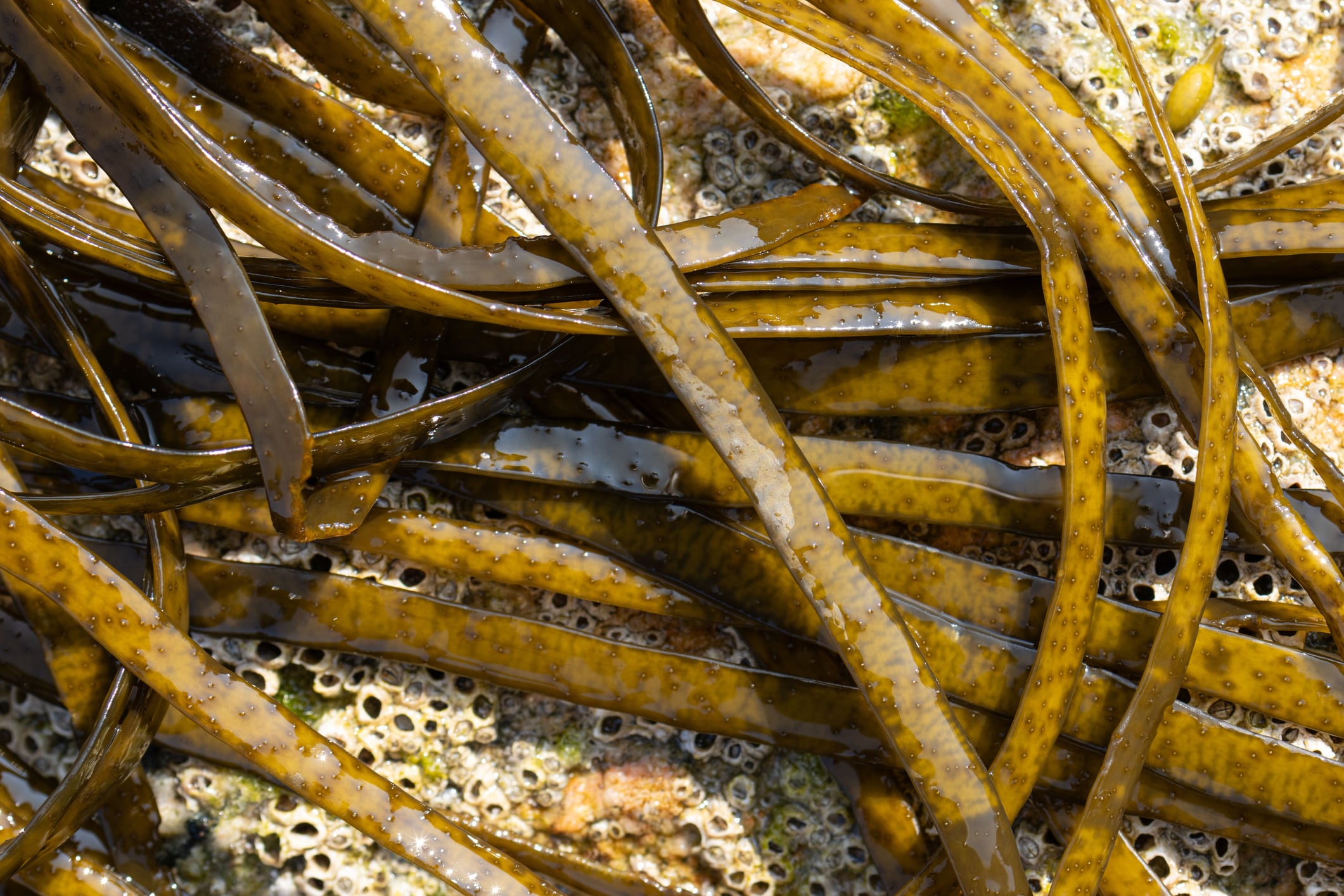Researchers in Spain and Mexico investigated the effect of whole encapsulated Himanthalia elongata, also known as thongweed, on the gut microbiota (GM) of overweight individuals in a recent randomized, double-blind, placebo-controlled trial.
“These results support the potential use of this seaweed as a functional prebiotic ingredient in dietary strategies aimed at enhancing gut health,” wrote the researchers in Nutrients.
“This randomized, double-blind, placebo-controlled trial is the first work evaluating the effects of whole encapsulated H. elongata on the GM of overweight individuals.”
Seaweed fiber for microbiome diversity
Dietary fiber is known to support key bodily functions like intestinal transit, satiety, blood sugar control and fat metabolism. A high-fiber diet also encourages the growth of beneficial gut bacteria like Bifidobacterium and Lactobacillus. Fiber can help maintain GM stability by stimulating the production of short-chain fatty acids (SCFAs), which regulate energy, hormone release, cholesterol levels and inflammation.
Fiber intake in Western countries is reportedly low due to a combination of high consumption of ultra-processed foods and low intake of whole grains, fruits and vegetables, which can lead to poor metabolic health and gut dysbiosis.
Most dietary fibers in Western diets come from land plants, but rising global food demand is now driving interest in sustainable fiber sources like seaweed, which grows rapidly without requiring farmland, freshwater or fertilizers.
Green seaweeds remain underused in health industries according to the authors, despite being high in protein, low in fat, and rich in essential vitamins, minerals, and polyphenols.
“Interestingly, polyphenols are not absorbed in the small intestine and reach the colon, where they may positively affect the GM composition,” they wrote.
According to the authors of the new study, previous research on seaweed’s effects on the GM has mostly used in vitro models and focused on isolated polysaccharides from brown seaweed, but as whole seaweed contains a wider range of bioactive compounds, it may offer broader benefits.
Study details
The researchers enrolled 10 participants (five per group) aged 20–65, to take capsules with 1 g of H. elongata or receivedrice starch, which has minimal impact on the GM, for 30 days.
Fecal samples were collected before and after the intervention for 16S rRNA sequencing and short-chain fatty acid analysis, dietary intake was evaluated using a 24-hour recall and a three-day dietary record, and nutritional assessment was performed to determine habitual macronutrient consumption.
Results showed that seaweed supplementation slightly increased alpha diversity, while the placebo caused a minor decrease, however, neither change was significant. Beta diversity analysis also showed that seaweed intake led to modest shifts in microbial community composition compared to baseline.
The seaweed group also showed a small increase in Bacteroidetes and Proteobacteria, and species-level analysis revealed that seaweed intake increased beneficial bacteria such as Parabacteroides distasonis, Bacteroides eggerthii, B. uniformis, and B. obeum, all of which are understood to support metabolic and gut health.
Carnobacterium viridans appeared only after seaweed supplementation, and while its role in the gut is unclear, the researchers note that related strains possess antimicrobial properties which could indicate a possible positive shift in the gut environment.
Metagenomic analysis showed that three metabolic pathways became significantly more abundant in the seaweed group: The PWY-621 pathway, which degrades sucrose and links to L-methionine biosynthesis; the PWY-5347 pathway which is responsible for glycogen biosynthesis; and the MET-SAM-PWY pathway, which synthesizes S-adenosyl-L-methionine (SAM).
These alterations indicated that the seaweed supplementation altered gut microbial metabolism, enhancing sugar breakdown, energy storage, and biosynthetic activity, the researchers explained.
SCFA levels in fecal samples however did not significantly change in either group after 30 days, which they suggest may be due to low fermentability of seaweed compounds, individual variability, or rapid SCFA absorption in the gut (which fecal samples might not reflect).
“Our findings suggest that a daily intake of 2 g of H. elongata for 30 days may benefit the GM composition by increasing the relative abundance of SCFA-producing bacteria, including P. distasonis, B. eggerthii, B. uniformis, and B. obeum,” the researchers conclude.
“These changes occurred despite the participants’ overall suboptimal dietary patterns, characterized by high fat and low fiber intakes.”
They note that while the intervention did not lead to statistically significant alterations in microbial diversity or SCFA concentrations, it did result in functional shifts at the metagenomic level, notably, the upregulation of the metabolic pathways related to carbohydrate metabolism and methylation.
They add that due to the small cohort number, results should be considered preliminary and that further research should include a larger and more diverse population, extend intervention periods and integrate a multiomic approach to gain a better understanding of the health benefits and mechanisms of action of H. elongata.
Source: Nutrients 2025, 17(12), 2047; doi: 10.3390/nu17122047 “Modulation of Gut Microbiota by Whole Encapsulated Brown Seaweed (Himanthalia elongata) in Overweight Subjects: A Randomized Double-Blind Placebo-Controlled Trial.” Authors: Lopez-Santamarina, A. Et al





